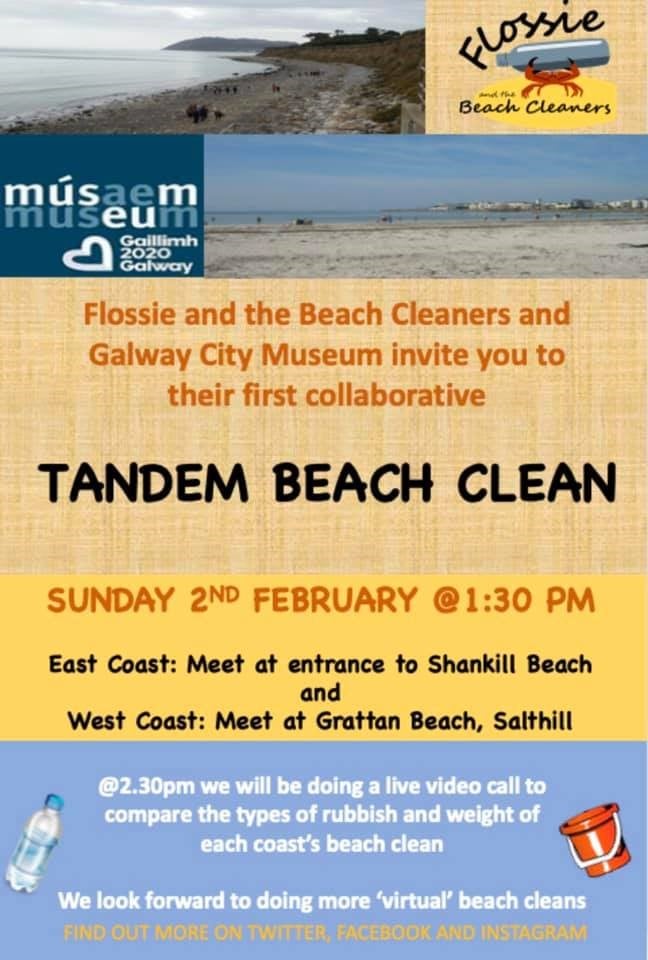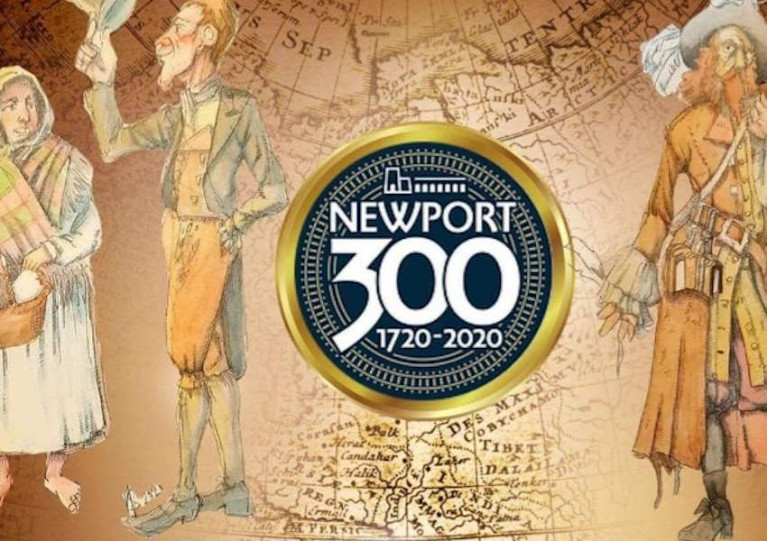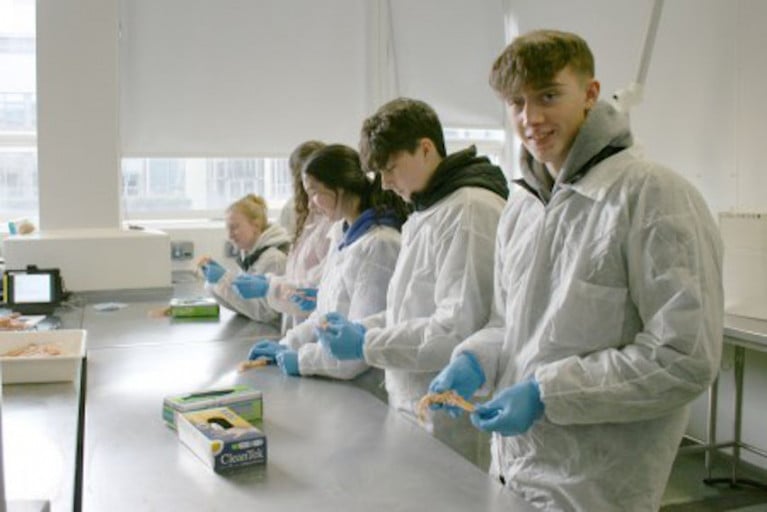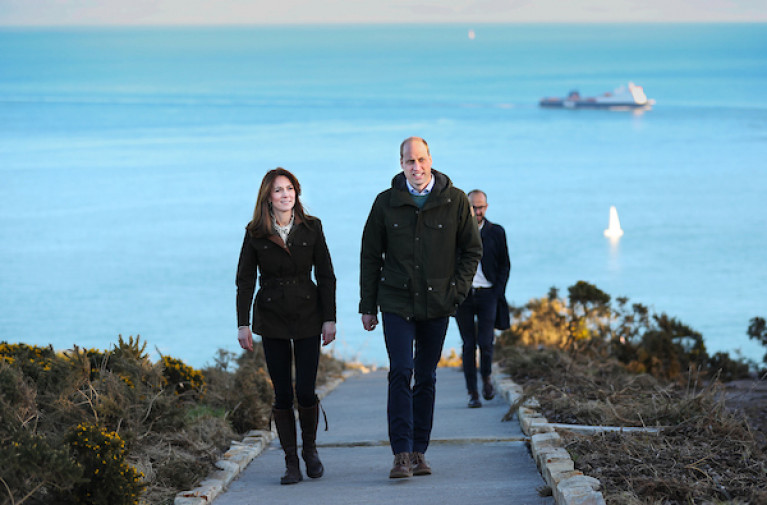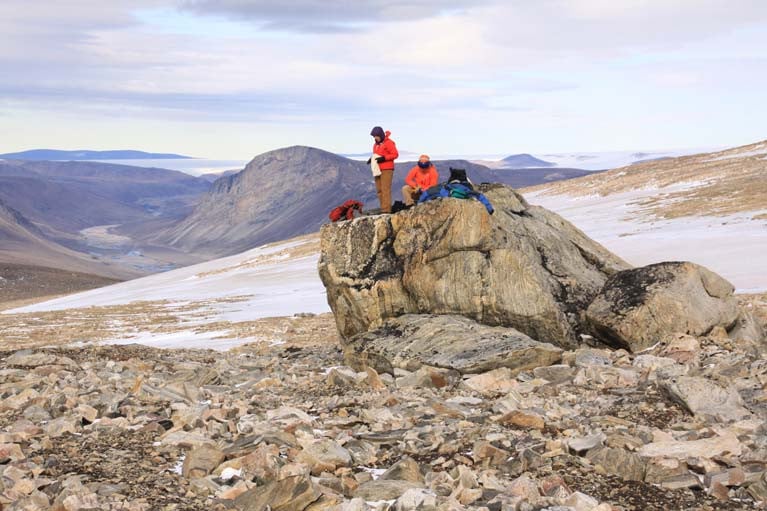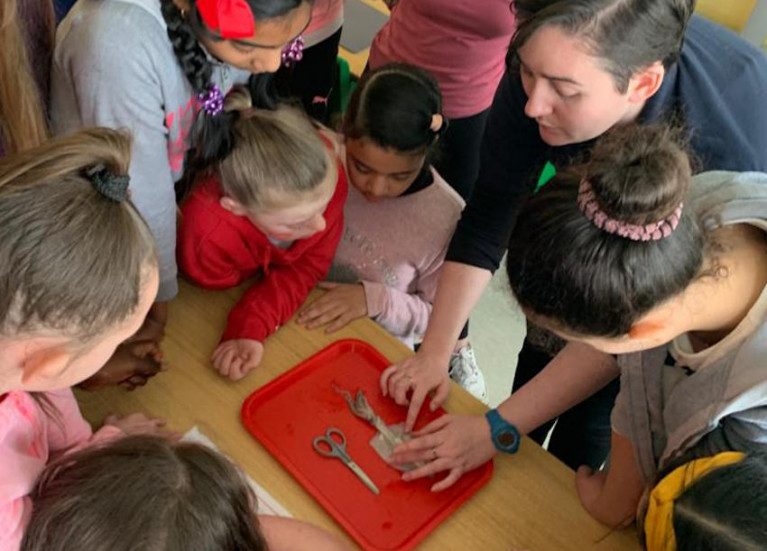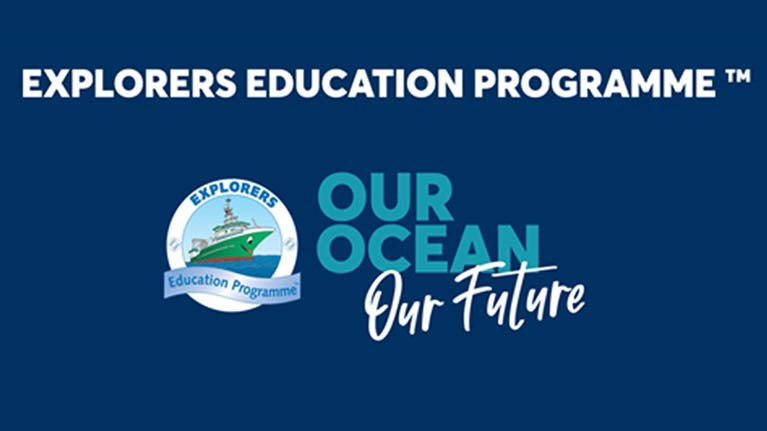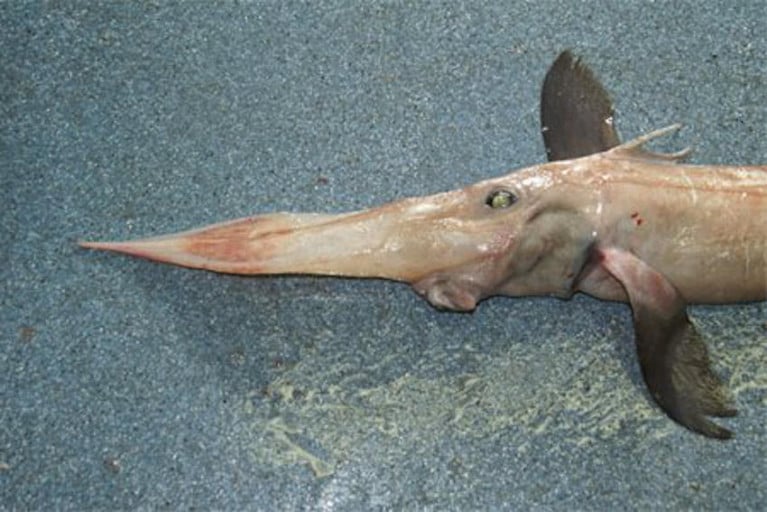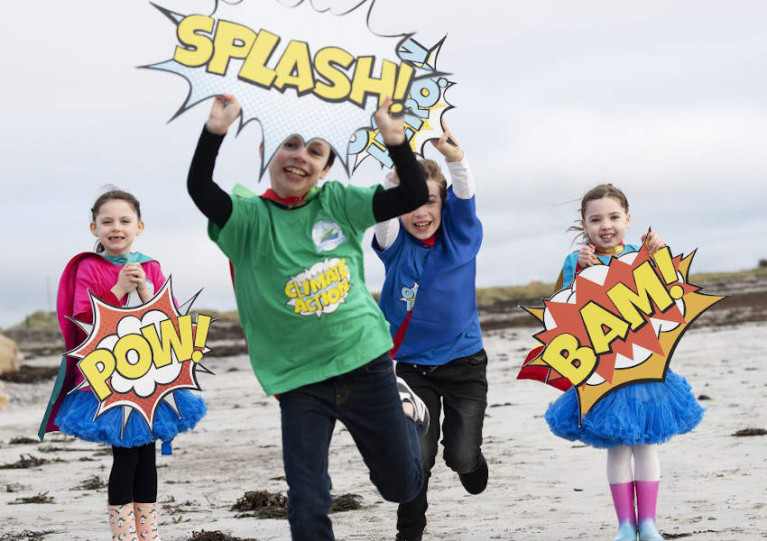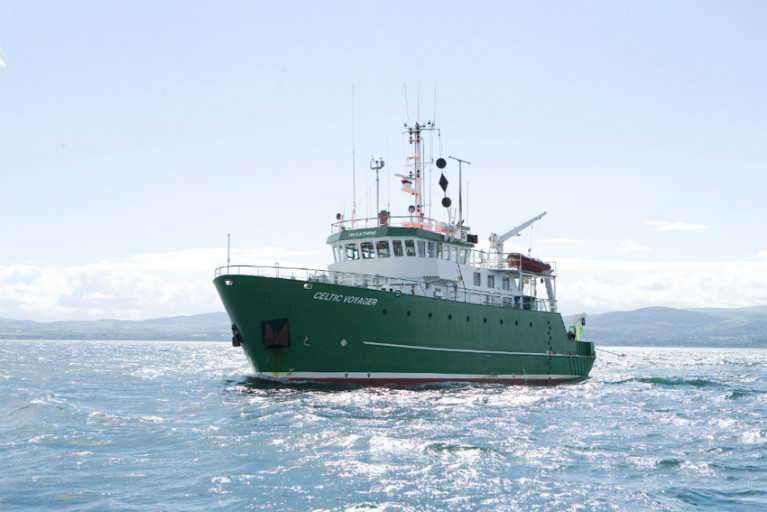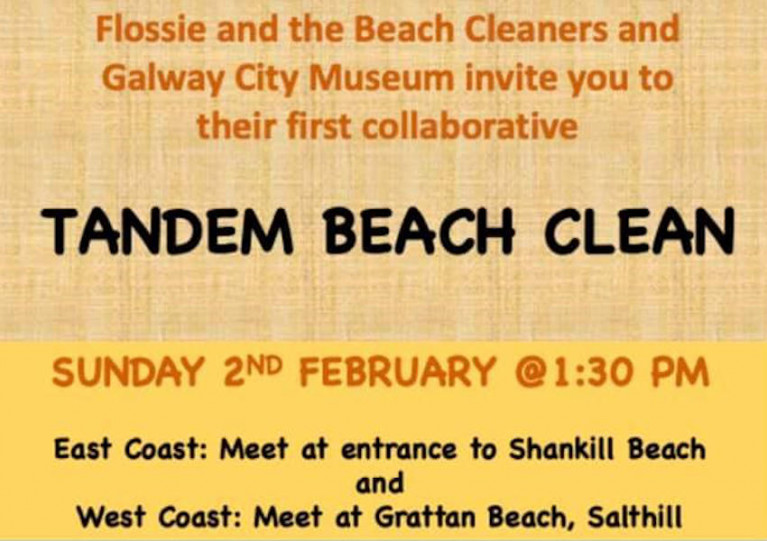Displaying items by tag: Marine Institute
Newport’s 300th Anniversary Celebrated With Lecture Series On Research Fishery (UPDATE)
Update on Wednesday 11 March: Due to concerns over COVID-19/coronavirus, the decision has been made to postpone the two lecture evenings until a later date during the Newport 300 celebrations.
To celebrate the 300th anniversary of Newport in Co Mayo, the Marine Institute will be presenting a lecture series this Thursday and next at Nevin’s Newfield Inn in the town.
A range of speakers will share their experiences and discuss the research undertaken at the Marine Institute’s Newport Research Facility, which has been in operation since 1955 and became part of the institute in 1999.
Research focuses on a wide range of topics including fish ecology, genetics, population dynamics and advice for a broad range of species, as well as oceanography and impacts of climate change on aquatic ecosystems.
The first lecture, this Thursday 12 March, begins at 7pm and will focus on the ‘how and why of Burrishoole research and how it has evolved’ as outlined by Russell Poole of the Marine Institute.
The fish traps managed by the Marine Institute, and located between Lough Furnace and Lough Feeagh, monitor all movements of fish to and from the freshwater catchment. Burishoole is one of the few places in the world where every single migratory fish moving in or out of the catchment can be counted.
Elvira de Eyto of the Marine Institute and past Cullen Fellow Sean Kelly of the Dundalk Institute of Technology (DkIT) will also talk about 65 years of environmental observations of the Burrishoole catchment, which includes data collection on weather, water quality, floods and plankton.
And author Sean Lysaght will conclude the first lecture evening by speaking about ‘Eagles in Mayo - Their Heritage and History’.
The second lecture evening, titled ‘Marine and Wildlife in Clew Bay’, will be held next Thursday 19 March at 7pm.
Aisling Doogan, PhD student at Galway-Mayo Institute of Technology (GMIT) and a Cullen Fellow at the Marine Institute, will talk about her research on tracking Atlantic salmon smolts through Clew Bay.
Phil McGinnity, Marine Institute and University College Cork (UCC), has been involved in fisheries research and management for more than a quarter of a century and will discuss his research in fish population genetics.
Eoin McGreal, conservation ranger with the National Parks and Wildlife Service, will also speak about the variety of wildlife in Clew Bay.
Marine Institute chief executive Dr Paul Connolly said: “We are delighted to host this lecture series to support Newport 300.
“The Marine Institute’s Newport Research Facility is a hub for national and international research with Marine Institute staff, collaborating researchers and students based at the facility. This lecture series is a great opportunity to share our diverse range of research projects with the Newport community."
The Marine Institute will also host a Family Open Day at the Research Facility on Sunday 29 March from 11am to 4pm to celebrate Newport 300. Details to come.
Twenty-five Transition Year (TY) students from Mayo, Galway, Roscommon, Clare, Kildare, Carlingford, Dublin and Sligo were welcomed to the Marine Institute’s sixth annual TY week programme following the recent midterm break.
From 24-28 February, students had the opportunity to learn about marine science, technology, engineering and communication through a range of activities at the Marine Institute's headquarters in Oranmore, Co Galway.
Students participated in interactive activities related to marine fisheries and chemical science, seabed mapping, food safety, communications, research vessel operations, oceanography, climate change, engineering technology, maritime development, information technology with data and coding as well as team-building.
The TY programme enables students to shadow scientists and staff at the Marine Institute and experience what it is like to work in the marine sector.
Marine Institute chief executive Dr Paul Connolly said: “Our TY programme provides an insight into the diverse career opportunities on offer in Ireland’s marine sector, and inspire the next generation of marine professionals and ocean leaders.
“Increasing students’ knowledge and engagement on the importance of our marine resource is key to supporting Ireland’s ocean economy, where highly-skilled professionals are needed in the future.”
HR manager Catherine Quigley-Johnston added: “The demand for our TY programme is growing every year and it is great to see such a strong interest in science, technology and the environment and that many are considering pursuing careers in our marine and maritime sectors at this stage of their education.
“Alongside the interest and enthusiasm from our students, the passion and knowledge shared by our teams involved in delivering the content helps make the TY programme a success."
Encouraging a new generation to pursue marine and maritime careers is part of the Marine Institute’s Strategic Plan 2018-2022: Building Ocean Knowledge, Delivering Ocean Services.
Ireland's national marine plan, Harnessing Our Ocean Wealth, also highlights the need for education and training programmes to maintain and develop skilled professionals in the marine sector.
All places for this year’s TY programme have been allocated, but next year’s Transition Year students, from any school in Ireland, are welcome to apply for the week-long, full-time programme at the Marine Institute for 2021 when the process begins in September.
The vital role of the ocean, climate change, and actions to safeguard it for future generations were the focus of conversations between The Duke and Duchess of Cambridge and the Marine Institute during the royal couple’s first official visit to Ireland.
Dr Paul Connolly, CEO of the Marine Institute, Ireland’s state agency for marine research, technology development and innovation, along with All-Ireland Ocean Youth Ambassador, Eimear Manning, met with The Duke and Duchess at Howth, North County Dublin, today.
During a coastal walk of Howth Head, Dr Connolly spoke with Their Royal Highnesses on several subjects that are central to the work of the Marine Institute including the importance of the oceans to coastal communities and climate adaptation. The Marine Institute, through the BlueFish Project, is working with coastal communities in Ireland and Wales on the importance of the ocean to their livelihoods and the impacts of a changing climate.
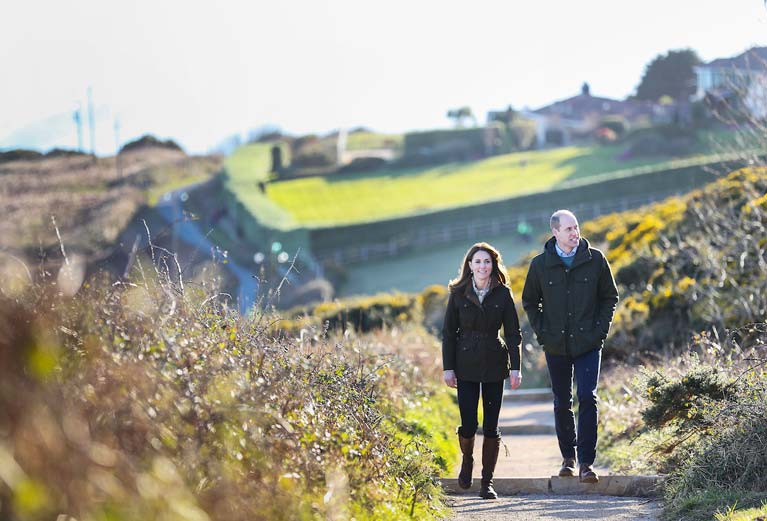 The Royal couple take a stroll on the Hill of Howth, a village and outer suburb of Dublin Photo: Julien Behal
The Royal couple take a stroll on the Hill of Howth, a village and outer suburb of Dublin Photo: Julien Behal
Other topics of conversation included Ireland’s role in exploring and mapping the seabed, international collaboration on ocean research, and the Marine Institute’s role in empowering Ireland and its people to safeguard and harness our ocean wealth.
Eimear Manning is one of 23 All-Atlantic Ocean Youth Ambassadors who are supported by the All-Atlantic Ocean Research Alliance (AORA). She is also an environmental education specialist delivering programmes for a variety of environmental and youth-focused charities and Non-Governmental Organisations.
She spoke with The Duke and Duchess of Cambridge about ways to engage with communities, schools and businesses to introduce behavioural change initiatives and programmes for the marine environment. Working with All-Atlantic Ocean Youth Ambassadors across the globe, she strives to promote sustainable development and stewardship of the Atlantic Ocean.
The Marine Institute’s work aligns with The Royal Foundation of The Duke and Duchess of Cambridge and its aim to unite people to tackle some of today’s biggest challenges.
In January 2020, Prince William launched the Earthshot Prize, an ambitious set of challenges to inspire a decade of action to repair the planet. These challenges will seek answers to the biggest issues currently facing the planet, including climate and energy, nature and biodiversity, oceans, air pollution and fresh water.
2020 signals a ‘super year’ for the environment with crucial summits including the COP26 Climate Change Conference in the UK and the Convention on Biodiversity in China and the UN Ocean Conference. This year, European Maritime Day takes place in Cork City, Ireland, with a two-day event (14-15 May) during which Europe’s maritime community meet to discuss and forge joint action on maritime affairs and sustainable blue growth.
Dr Paul Connolly, CEO of the Marine Institute said, “I was delighted to meet with Their Royal Highnesses, The Duke and Duchess of Cambridge, to talk about shared interests in protecting our oceans and adapting to a changing climate.”
“Our oceans are fundamental to life on earth. They unite us – yet they face a multitude of challenges. Our focus in the Marine Institute is to further our understanding of our changing ocean. Our enhanced knowledge and services help us to observe these patterns of change and identify the steps to safeguard our marine ecosystems for future generations.”
Arctic Researchers Network for Ireland
The Marine Institute in collaboration with the Department of Foreign Affairs and Trade launched the Network of Arctic Researchers in Ireland (NARI) last Friday.
NARI aims to create, maintain and develop an informal all-island network of Arctic researchers in Ireland to facilitate the collaboration of scientific activities linked to the Arctic, and to provide independent scientific advice to the public and policymakers.
Irish sailors have voyaged to both the Arctic and Antarctic in recent times. Last Summer Gary McMahon's restored Ilen project went to Greenland and the Arctic circle. Jamie Young’s Frers 49 exploration yacht Killary Flyer from Ireland's west coast travelled to the Arctic in 2013 and 2019. And this year Round the World Sailor Damian Foxall led a mission to Antarctica.
According to the IPCC Special Report on the Ocean and Cryosphere, the extent of Arctic sea ice is declining and is getting thinner. Glaciers and ice sheets in polar and mountain regions are also losing mass, contributing to an increasing rate of sea-level rise, together with expansion of the warmer ocean. Sea level rise will increase the frequency of extreme sea-level events and warming oceans are disrupting marine ecosystems.
With significant demand for greatly enhanced knowledge and services to observe the changes in our oceans, NARI aims to enhance collaboration and promote Irish-based Arctic research activities, seek international polar cooperation and support the next generation of Arctic scientists.
President of NARI, Dr Audrey Morley of National University of Ireland, Galway said, “The coordination of research efforts on a regional, national and international scale is becoming increasingly urgent in order to address the emerging environmental and societal pressures on the Arctic region, which are of global significance. NARI will support a greater scientific understanding of the Arctic region and its role in the Earth system.”
Dr Audrey Morley will be leading a survey on the Marine Institute’s marine research vessel the RV Celtic Explorer later this year to improve our understanding of marine essential climate variables in the Nordic Seas. The Marine Institute is providing ship-time funding for this research survey and funding Dr Audrey Morley’s Post-Doctoral Fellowship (Decoding Arctic Climate Change: From Archive to Insight) in support of improving our understanding of Arctic climate change and ecosystems.
Dr Paul Connolly, CEO of the Marine Institute said, “As an Arctic neighbour, Ireland is exposed to the effects of a warming ocean, such as rising sea levels, increasing storm intensity and changing marine ecosystems. Scientists based in Ireland can make a real and meaningful contribution to Arctic research, and help to develop and implement adaptation responses from local to global scales. The Marine Institute is delighted to be supporting a network which will foster impactful research into the causes, manifestations and impact of Arctic change.”
Since 2018, the Embassy of Ireland in Oslo and the Marine Institute have sponsored early career researchers to attend the Arctic Frontiers Emerging Leaders. It is an annual program held in Tromsø, Norway, which brings together approximately 30 young scientists and professionals from around the world with interests in Arctic security, Arctic economy and Arctic environment.
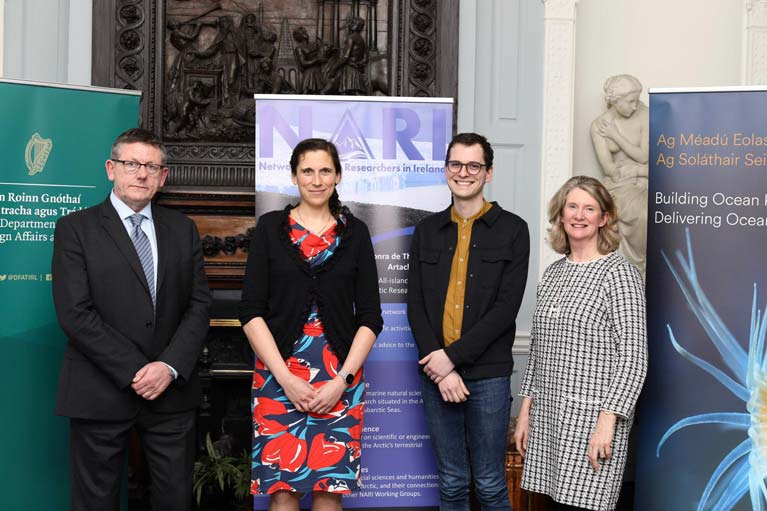 The Marine Institute and Dept Foreign Affairs have launched an informal Arctic researchers network
The Marine Institute and Dept Foreign Affairs have launched an informal Arctic researchers network
Ciara Delaney, Regional Director at the Department of Foreign Affairs and Trade, said: “The Department of Foreign Affairs is delighted to host today’s round-table meeting of Irish-based Arctic researchers. Given the impact of climate change and the increasing relevance of strategic developments in the Arctic, the Arctic region is of growing importance to Ireland. A previous roundtable meeting in 2019 demonstrated considerable interest for the establishment of a national network of researchers to identify and take forward areas of common interest on Arctic issues. Building on this initiative, we are delighted to officially launch the new Network, together with the Marine Institute of Ireland. I hope that NARI can contribute to developing a strong, research-led, evidence base for Ireland’s growing engagement with the Arctic region.”
The new all-island network (NARI) brings together multidisciplinary scientists from the National University of Ireland Galway, the University of Limerick, the National Maritime College of Ireland, Cork Institute of Technology, Queens University Belfast, National University of Ireland Maynooth, University College Dublin, Trinity College Dublin and University College Cork.
Explorers Education Programme Is Loving The Ocean On Valentine’s Day
Global Action Plan Ireland and the Irish National Sailing & Powerboat School (INSS) shared their love for the ocean on Valentine’s Day with primary schools in Ballymun and Dun Laoghaire as part of the Marine Institute’s Explorers Education Programme.
With a Master’s degree in Marine Sustainability and a passion for sharing her love for the ocean, Eimear Manning, education officer with Global Action Plan Ireland, started an Explorers marine science project with over 25 children from Virgin Mary GNS in Ballymun, North Dublin.
Beginning this week, they will be exploring everything from plankton to sharks, and how climate change effects all creatures in the sea. Sharks are a speciality of Eimear’s, who joins frequent expeditions in Florida to tag and collect data on sharks off the Miami coast.
“I am really excited to be involved in the Explorers Education Programme and having their support providing clear objectives of how to increase marine engagement and ocean literacy in schools in Ireland,” she said.
“Having also recently represented Ireland at the All-Atlantic Ocean Research Forum in Brussels as an All-Atlantic Youth Ambassador has highlighted the importance of children engaging in our ocean.
“The involvement of youth in addressing how we enjoy and use our ocean resources helps to ensure we are better equipped to look after our environment now and into the future.”
Also involved in the pilot outreach training is Muriel Rumball from INSS, who brings a wealth of expertise to the team where she has been involved in teaching children about all aspects of the ocean, from marine recreation to formal education.
Running a seashore safari with students from Glenageary Killiney National School, Muriel highlighted the value of teaching children about the marine on the curriculum.
“I have worked with children for many years both in and out of school and it is extremely important that we give children the opportunity to extend their education relating to environmental care outdoors,” she said.
‘Exploring the seashore at our doorstep is key to ensuring we learn to truly value, love and engage with the ocean in a positive way’
“Sharing and seeing children touch, feel and smell the ocean as well as exploring the seashore at our doorstep is key to ensuring we learn to truly value, love and engage with the ocean in a positive way.”
Recently selected to take part in Explorers pilot training, the teams — along with four other outreach centres from Louth, Wexford and Limerick — took part in a three-day workshop in Galway run by Dr Noirin Burke of Galway Atlantaquaria and Cushla Dromgool-Regan of the Camden Education Trust.
“The training programme provided an excellent introduction for outreach centres wanting to learn more about how to introduce concepts of ocean literacy onto the curriculum, as well as support key aspects of the UN Sustainable Development Goals, with a particular reference to climate action and the ocean,” said Cushla, who is responsible for the strategic development and management of the Explorers Education Programme.
Welcoming the opportunity to support new centres and expand the Explorers reach around the country, Dr Burke added: “Initiatives like this help build on the success of the Explorers programme who have been working with primary schools for over fourteen years.
“We are delighted to be able to share our knowledge with the centres as well as help develop a stronger network of marine outreach professionals throughout Ireland.”
Dr Paul Connolly, chief executive of the Marine Institute, congratulated the Explorers training team and the centres in taking part in the pilot outreach training programme.
“Developing marine outreach that can support teachers in classrooms is key to ensuring children receive a unique experience of learning and engaging with the ocean,” he said. “In turn, this helps to equip children in becoming ocean leaders and marine champions of the future.”
For more information about the Explorers Education Programme see www.explorers.ie
Marine Institute’s 'Explorers Education Programme' Arrives in Dun Laoghaire Harbour
The children from Glenageary Killiney National School (GKNS) are participating in the Marine Institute's Pilot Explorers Education Programme™, hosted by the Irish National Sailing & Powerboat School in Dun Laoghaire this Friday. The programme complements the national school curriculum, presenting children with a deeper understanding of the impact of our ocean, climate change, conservation and a deeper understanding of living things that abound our shores. This programme is a pilot programme funded by the Marine Institute.
‘The children of 5th class in GKNS are delighted and excited to be taking part in this pilot programme, especially this year, as it is very relevant to our attempts to achieve the Green School Biodiversity Flag’ reports Ms Yates, class teacher of fifth class.
The children will participate in a sea safari on the beaches of Salthill and Sea Point in Dun Laoghaire examining marine life and studying the conservation aspects of the shoreline. They will discuss and debate ocean literacy and plan individual and group projects on their findings.
Fifth class hope to participate in The Marine Institute's Explorers Super Hero Pop Art & Creative Writing Competition which was launched by the Marine Institute on the 27 January and is open to all primary schools.
Workshop Aims To Map Deepwater Sharks In North-East Atlantic
Experts in shark biology, data and mapping recently met at the Marine Institute’s headquarters in Oranmore, Co Galway to map the distribution of deepwater sharks, skates and chimaeras in the North-East Atlantic Ocean.
Scientists and marine experts at the International Council Exploration of the Seas’ (ICES) WKSHARKS Workshop analysed decades of data from research surveys in the North Atlantic Ocean.
This included nearly 30 years of data collected by Irish scientists on board the Marine Institute’s RV Celtic Explorer and commercial vessels.
The WKSHARKS Workshop included experts from Ireland, the United Kingdom, Portugal, France and Denmark, with other experts contributing remotely from Norway, Iceland and the Netherlands.
And their aim was to produce maps that indicate the area and depth of 25 species of deepwater sharks, skates and chimaeras — information that will assist in understanding the range and habitat of these marine wildlife species, underpinning future management decisions.
It will also be considered by the Convention for the Protection of the Marine Environment of the North-East Atlantic (OSPAR) and the North-East Atlantic Fisheries Commission (NEAFC) to determine future action to sustainably manage these populations.
These two organisations have a joint interest in the open North Atlantic, while ICES scientists have unique knowledge of the deepwater fisheries and species in this area, which focuses on waters off Ireland, Portugal and Iceland.
Maurice Clarke, fisheries scientist at the Marine Institute and WKSHARKS Workshop chair, said: “Sharks and rays have an important function in maintaining balanced and healthy marine ecosystems. Providing scientific advice is essential to protecting these marine species in the North-East Atlantic.
“For many of these species, this is the first time that data from European surveys is being collated and analysed for this purpose.”
Irish waters are home to 71 species of sharks, skates, rays and chimaeras. These species include some of the latest maturing and slowest reproducing of all vertebrates, resulting in very low population growth rates with little capacity to recover from overfishing and other threats such as pollution or habitat destruction.
ICES received a joint request from the Convention for the Protection of the Marine Environment of the North-East Atlantic (OSPAR) and the North-East Atlantic Fisheries Commission (NEAFC) to develop distribution maps of deep-sea sharks, rays and skates, and also to advise on methods of mitigating bycatch of these species.
Primary school children across Ireland are being invited to use the power of their imagination to save the ocean from climate change in a new art and writing competition.
The Explorers Pop Art & Creative Writing Competition was launched earlier this week by the Marine Institute’s Explorers Education Programme.
“By bringing science, art and creative writing together, the aim of the ‘ocean superhero’ competition is to cultivate the children's imagination, creating new ideas and solutions when addressing issues of environmental care and climate change,” said Cushla Dromgool-Regan, Explorers Education manager from Camden Education Trust who is co-ordinating the contest.
“The idea of creating an ocean superhero aims to help create a sense of hope for children at a time of adversity in the world, when the impacts of climate change can seem extremely challenging.”
The winners will see their art work and stories showcased as part of the Marine Institute exhibit at SeaFest, Ireland’s largest maritime festival, from 14-17 May.
A shortlist of VIP winning classes will be invited to visit the Marine Institute’s research vessel and its exhibition at Seafest, where they will get to meet world-leading speakers and scientists who are all working towards Ireland’s challenge in responding and adapting to climate change.
The Explorers Education Programme website has more information about the competition, including details of how to enter.
Open Call For 22 Marine Research Vessel Bursaries In 2020
The Marine Institute in collaboration with the Strategic Marine Alliance for Research and Training (SMART) is offering 22 bursaries on dedicated FEAS surveys throughout 2020 on the RV Celtic Explorer and RV Celtic Voyager.
Bursaries include groundfish, acoustic and underwater TV surveys (UWTV) on 13 survey legs between February and December of this year on the shelf waters of the Irish EEZ.
Successful applicants will receive a Student at Sea Bursary at a fixed rate of €95 per survey night.
Participants will receive hands-on training in data collection and sampling techniques, be fully integrated into the survey work programme and make an important contribution to achieving the survey goals for marine science.
In so doing they will gain valuable sea going experience and assist the Marine Institute in building the necessary capacity for offshore research and monitoring.
Applicants should be marine-oriented graduates, postgraduates, researchers or practitioners in marine-oriented enterprises. They must hold current ENG11 medical and Personal Survival Techniques (PST STCW95) certificates, and should have some prior sea-going experience.
Further information on the available bursaries can be found on the SMART website, which also has details of the online application process.
Ireland’s East and West Coasts will compete to collect the most marine litter in a simultaneous beach clean this Sunday 2 February.
The Tandem Beach Clean is being organised by Galway City Museum along with Flossie and the Beach Cleaners, an initiative formed by 12-year-old coastal litter crusader Flossie Donnelly who will be no stranger to Afloat.ie readers.
Volunteers will gather at Grattan Beach in Salthill, Galway and Shankill beach in Co Dublin from 1.30pm this Sunday, and both sides will link up virtually at 2.30pm to compare how much rubbish they’ve collected, as well as the highest number of plastic bottles and tin cans.
There will also be a competition for the oldest item picked up along the shore, and a prize for the most unusual find.
Speaking about the event, Flossie said: “We are so excited that Flossie and the Beach Cleaners, Galway City Museum and the Marine Institute will be taking part in the very first ‘virtual beach clean’.
“Month by month the charity will be organising virtual beach cleans around the coast of Ireland until we have a national virtual beach clean. We are delighted that Galway City Museum and the Marine Institute will be joining us for this exciting event. The East meets the West!”
Harriet Dundon, a Marine Institute graduate intern at Galway City Museum, added: “We are becoming more aware of plastic waste in our ocean, and beach cleans are one way we can help make a difference.
“The museum is delighted to be involved in this national event to raise awareness about marine litter and be the first collaborators with Flossie and the Beach Cleaners on the West Coast.”
Galway City Museum hosts the Marine Institute’s exhibition, Sea Science — The Wild Atlantic, the first of its kind in the country, as previously reported on Afloat.ie.
To take part in either beach clean this Sunday, simply turn up on the day — participants will be provided with equipment for rubbish collection and are encouraged to wear appropriate clothing and footwear.
